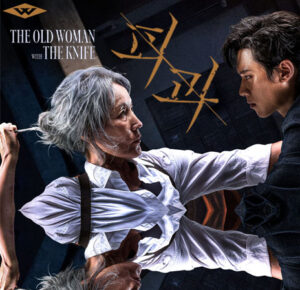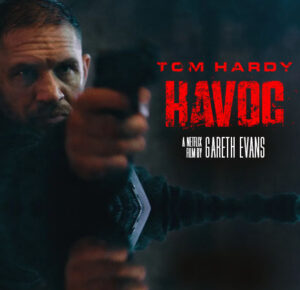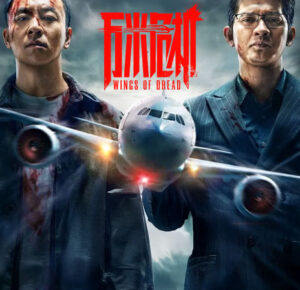
“Eight Diagram Pole Fighter” Hong Kong Theatrical Poster
Director: Liu Chia-Liang
Writer: Liu Chia-Liang
Cast: Gordon Liu Chia Hui, Alexander Fu Sheng, Kara Hui Ying Hung, Lily Li Li Li, Philip Ko Fei, Lin Ke Ming, Johnny Wang Lung Wei, Chu Tiet Wo
Running Time: 99 min.
By JJ Hatfield
Eight Diagram Pole Fighter is truly a magnificent film! The cast and crew performed wonderfully in this most heartbreaking, disturbing, vicious and bloody film Lau Kar Leung and company ever made.
The period piece begins with action encompassing the massive ambush of the Yang family men, father and seven sons. They are savagely attacked, heavily outnumbered, betrayed by Pan Mei using Mongols and even had Manchu troops develop and practice with weapons that seriously hinder the Yang family style of spear fighting. All of this happens in one swift move before and during the opening credits! Pan Mei’s family and combined forces still required careful planning. The slaughter of the Yang family is particularly horrific. The brothers and father are stabbed, eviscerated, hacked, cut, impaled, slashed, skewered and stomped into the ground once they could no longer stand.
Miraculously two of the brothers survive but not without physical and psychological injuries. The fifth brother (Gordon Liu) wanders in the wilderness desperately seeking safety and then revenge, while the other surviving brother, the sixth (Alexander Fu Sheng) manages to find his way back home but has been driven insane by the horrible tragedy.
Lau tried to use real stories about real people in his films, and this is certainly no exception The Yang family was held in high esteem by the Sung Dynasty Emperor and is under orders to keep the peace, especially with the Mongols. However after the betrayal the honored family name was forever destroyed and Pan Mei accuses them of being the real betrayers of the land. His fiendish plan not only ridded him of anyone to stand in his way it was also revenge for the death of his oldest son who was killed by a Yang during a martial arts tournament.
Lily Li-Li is excellent as the matriarch of the family. Even with the terrible loss she is still capable of managing important efforts. To find out all of her sons but one and her husband are dead is a tremendous blow but she tends to 6th brother and tries to help his injured soul. I can’t argue that Fu Sheng is a bit over the top but honestly it works perfectly and does not feel at all silly. He really seemed to be trying hard to be sincere but at the same time out of his mind at the horror he has been through. He goes through different stages. At times he tries to fight with what’s left of his family. Sometimes he just sits with his fists clenched. Other times he is back at the ambush. His mother knows he will never be the same no matter how much love she has for him. He will always need someone to help keep him somewhat balanced and connected to reality.
This movie started shooting in 1981 and during production Fu Sheng was seriously injured (on the set I believe) breaking both legs and incurring a head injury. The film stopped cold. Lau was credited with helping Fu Sheng believe he could recover soon and go on with his career doing fighting and some slapstick comedy which could require a lot of physical demands. When Fu Sheng was well enough they started shooting again. By this time Shaw Brothers were being challenged by Ray Chow and Golden Harvest. Still the Shaws had their golden boy, Fu Sheng and it wasn’t over yet. He was considered not only an actor but learned to fight and do acrobatic stunts which he learned much of in the Shaw Brothers school.
Fu Sheng came from a family that expected him to pursue academics and rebelled by going into movies which seriously displeased his kin. But he loved everything about performing and though he was often hamming it up big time he had a loyal following. He had experience working with both Chang Cheh and Lau Kar Leung.
Everything indicated he had a bright future. But it was not to be. Production had resumed when on July 7, 1983 Fu Sheng was returning to his home after dinner out. He was a passenger in a car driven by his brother. Apparently his brother took one of the winding curves on Clearwater Road too fast and hit a cement barrier. Fu Sheng was rushed to the nearest hospital where he died a few hours later.
Some people believed he inherited Bruce Lee’s bad luck because he bought the house Bruce Lee owned when he died and had been felled by the same curse.
It is said Fu Sheng’s ghost would walk around the Shaw studios. At his makeup booth they set up a shrine, hoping it would please him.
Once again the production was shut down. Lau spent months – some say six, some say years contemplating what the next step should be. His final decision was to use all the finished scenes with Fu Sheng and turn it into a memorial of sorts. To everyone’s credit they used their pain and sorrow in their acting and fighting. It is very effective. It doesn’t feel as if anyone is acting. The anger and misery seems real because everyone truly felt those emotions.
Fu Sheng was originally supposed to be the one to go to Shaolin. Major script re-writes were required that now put Fifth Brother (Gordon Liu) in Fu Sheng’s role.
The 5th brother happens upon a small house. When he doesn’t see anyone there he goes inside the house. He is justifiably paranoid and constantly looks out for the enemy. As so many thoughts and feelings run through him and his adrenaline fueled rage suddenly the door opens (Lau Kar Leung in a cameo) and he attacks! The trapper gets the upper hand and tries to tell 5th brother there is really no way to win a war without killing a part of yourself too.
Suddenly Pan Mei’s soldiers and Mongols arrive and want to search for him but the selfless trapper refuses and takes on the soldiers so fifth brother can escape. Pan Mei needs to destroy any evidence of the betrayal. The trapper ends up sacrificing himself to allow 5th brother to escape. When he realizes the trapper has given his life to defend him he decides the only way to ease his tortured soul is to go to Shaolin and leave the pain of the outside world behind him.
While evading Pan Mei’s forces fifth brother makes it to the Shaolin Temple and wants to become a monk. Of course the news of the ambush and betrayal of the Yang family has reached the temple. 5th brother is told he is much too violent and focused on revenge to become a monk. He begs and pleads, desperate to find some peace, but he is still refused. Desperate and unable to live with such rage and fury he decides he will become a member of Shaolin whether or not they acknowledge him. He insists someone shave his head and when they refuse he does it himself, not caring how painful or bloody it might be. This is a very significant act. He also burns the familiar pattern on his head.
Although no one will officially accept him he does everything they do – he eats and sleeps there and practices the pole style. It being similar to using a fighting spear he advances quickly but the monks do not feel comfortable with his intensity and rage. They believe every life is precious and try to teach him to fight and disarm their opponent instead of killing them outright. He practices hard but cannot completely rid himself of the rage and anguish of his family being in ruin and their name in ruin as well.
One day one of the monks decides to show 5th brother the correct technique using amazing wooden jointed wolves. (I have never seen such a training device!) 5th brother immediately tries to smash it into pieces and destroy it but the monk (Phillip Ko) demonstrates in one of the most original fight scenes in film. This is such an alien concept to 5th brother it is difficult for him to believe. On one hand he wants nothing more than revenge and resurrection of his family’s good name. But on the other he desperately needs peace and an end to the raging burn inside him.
One compassionate monk travels to the Yang home to let them know their son is alive and at Shaolin. He delivers the message but is captured quickly by Pan Mei’s men. He kills himself rather than divulge any information. Once the family know 5th brother is alive 8th sister disguises herself as a man and rides off to find her brother. The trip is long and filled with dangers of all kinds. 5th brother continues to train fanatically. The risk is even greater because Pan Mei will not rest until he destroys the entire family. The same despicable men that set up the Yangs attack and capture 8th sister. As soon as 5th brother learns this he loads up a big cart load of poles and heads off to save his sister.
Despite all of the time he has spent in Shaolin temple his blood comes to a boil very quickly. The betrayal, the memories pushed aside come flooding back. Seeing his brothers and father, their eyes, the screams, the blood, their dead faces. Those memories; the sights, the sound stay with him as he continues on his way to rescue his sister. By the time he arrives with the numerous poles he is just on the edge of rationality. He rescues his sister but they are trapped. The two of them fighting at least thirty people if not more!
Oddly enough though this film was made in several stages months apart it doesn’t feel disjointed. The pace is constant from the bloody slaughter of the Yangs, to the incredible explosive finale! This is not a typical Lau Kar Leung film. There is no humor and family is nearly the only thing that matters. In that context respect, honesty, loyalty, and righteousness are simply part of the that family. The film maintains a quick pace throughout. But it is nearly always dark deeds that drive the film.
The production is quite beautiful in scenery and the sets. The music works well and is not intrusive but an enhancement. It’s obvious great care was taken by all to make this a quality film all the way around. Everyone put in a great effort but I have to say Gordon Liu was the saving grace. The fighting is above extraordinary. This is definitely Lau’s darkest film, full of fury, rage, bloody fights and horrific events. It’s also one of the very best!
JJ Hatfield’s Rating: 9.5/10
By Numskull
Classic shit from Lau Kar Leung and the Shaw brothers, worthy of note beyond the fact that Alexander Fu Sheng died during filming. The straightforward story about two of seven warrior brothers surviving an ambush and coping in very different ways (one invites himself into a Shaolin temple for additional martial arts training, the other goes nuts and attacks anything that moves) delivers unto us some very fine kung fu cinema. The final battle, about eight minutes in length, is one of the most praiseworthy fight scenes you’re likely to see on film; it’s fast, vicious, and bloody, and man oh man is that pole-in-the-mouth shit nasty.
Yeah, this is a short review, but there’s little else that needs to be said. Just watch the damn thing even if you’re only a casual fan of the genre, and be thankful that Celestial, while not possessing a flawless track record, have done this movie good. (From the English dub, I miss the abbott bursting in on the climactic battle and shouting “KILL!” after an hour’s worth of pushing tranquility and pacifism on Gordon Liu’s character, but that’s it; a more than equitable tradeoff.)
Numskull’s Rating: 8/10






















Be the 1st to Comment